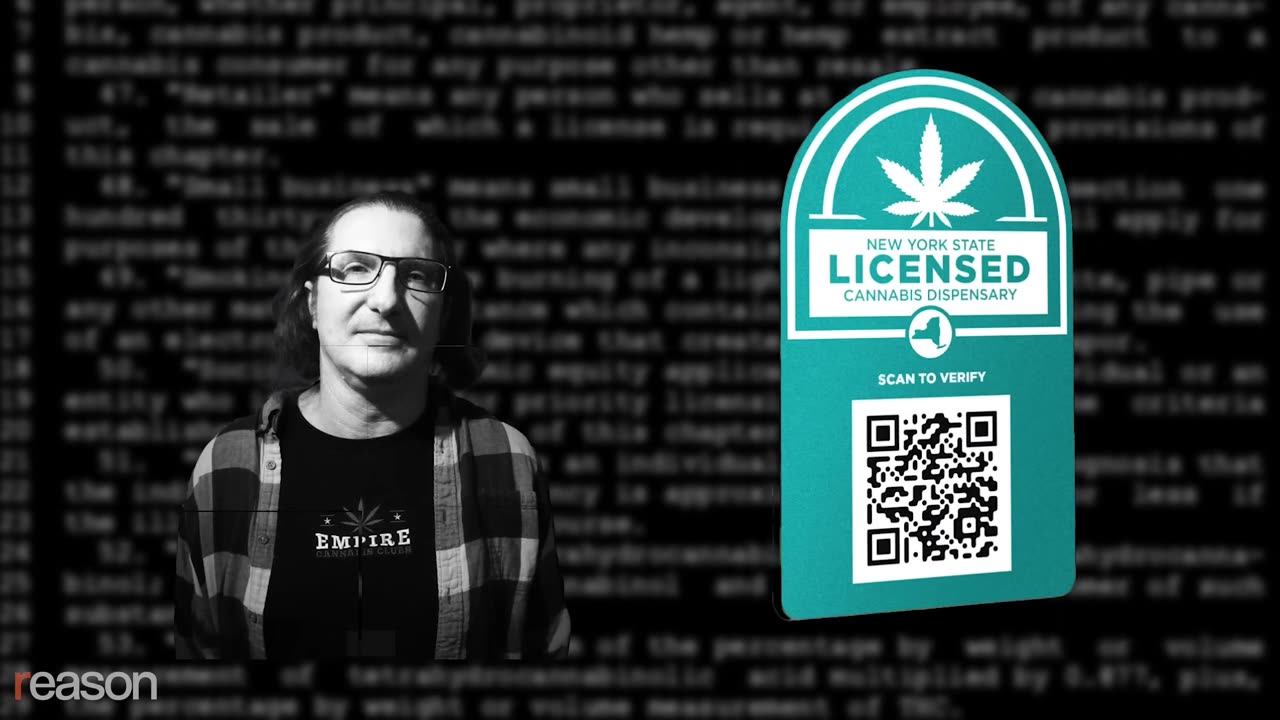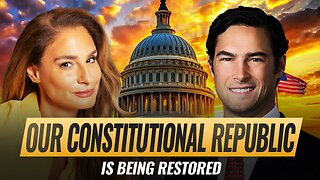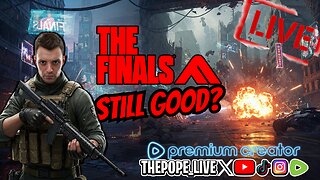Premium Only Content

New York's Weed Nightmare | How bureaucrats legalized weed to push their agenda.
New York's Weed Nightmare | How pot bureaucrats used legal weed to push their social justice agenda.
---
Mar 11, 2025
When former New York Gov. Andrew Cuomo faced sexual harassment allegations that threatened to end his career, he made a last-ditch effort to curry favor with the voters: He legalized weed. Maybe he hoped New Yorkers would be too stoned to remember the accusations that he had groped aides or asked female staffers to play strip poker with him.
.
New York's progressive legislators had been crafting a recreational marijuana bill since 2018, but the version that passed was rammed through as Cuomo fought for political survival. The bill wasn't just about legalizing cannabis; it was about righting historic wrongs by prioritizing licenses for people disproportionately impacted by prohibition. But in practice, the legislation has created a bureaucratic disaster that's failed both business owners and consumers.
.
Jonathan Elfand spent a decade in prison for growing and selling weed—a conviction that, under New York's new laws, should have given him priority in obtaining a legal dispensary license. Instead, he found himself stuck in bureaucratic limbo, with state regulators refusing to give him a license.
.
Unlike other states that simply legalized weed and let businesses flourish, New York took a heavy-handed, social justice–driven approach. Regulators created criteria that would offer priority licenses to women, minorities, veterans, and those from communities that had been "disproportionately impacted" by prohibition.
.
Even though Elfand had served a decade in prison for weed-related charges, that wasn't enough to guarantee a license. Instead, bureaucrats picked winners and losers, leaving enterprising business owners like Elfand out in the cold.
.
Shouldn't regulators let pretty much anyone open up, and allow customers to decide who they want to patronize?
.
New York's law explicitly allowed public consumption, unlike places like Amsterdam, which have designated coffee shops where people can get baked in semi-private. The result? A city where the smell of marijuana permeates the streets, frustrating residents who didn't sign up for this level of exposure.
.
New York could have followed Amsterdam's model: designating semi-private areas for smoking while enforcing no-smoking laws elsewhere. Instead, the state prioritized social justice and government control over decent policymaking.
.
New York's marijuana legalization effort was meant to correct past injustices. Instead, it has created a new class of victims: Entrepreneurs denied the opportunity to compete in a free and fair market. The real winners? The black market dealers who never stopped selling in the first place.
.
Producer: Kevin Alexander
https://reason.com/video/2025/03/11/n...
-
 2:37:49
2:37:49
The Connect: With Johnny Mitchell
1 day ago $11.77 earnedBlackwater Mercenary EXPOSES Private Military War Secrets From The Middle East, Fueling Terrorism
52.2K49 -
 LIVE
LIVE
EXPBLESS
3 hours agoA Rare Sunday Morning Stream (Hunt: Showdown LIVE Gameplay)
578 watching -
 2:54:21
2:54:21
Total Horse Channel
2 days ago2025 Scottsdale Arabian Horse Show | Saturday Evening Session
96.7K7 -
 LIVE
LIVE
BigDaddySlick78's Live Gaming Channel
5 hours ago🔴 Call Of Duty Warzone Rebirth Island & Area 99 Live w/ Subs #callofduty #warzone #bo6 #cod
183 watching -
 22:39
22:39
The Mel K Show
14 hours agoMel K & Representative Brandon Gill | Our Constitutional Republic is Being Restored | 4-26-25
75.7K56 -
 4:17:17
4:17:17
VapinGamers
13 hours ago $7.39 earned📣 Fortnite Family Night! - Games and Dubs with BrianZGame - !rumbot
70.7K5 -
 4:27:48
4:27:48
ThePope_Live
12 hours agoLIVE - First time playing The Finals in over a YEAR! Still good? with @Arrowthorn
53.3K2 -
 3:06:26
3:06:26
TruthStream with Joe and Scott
18 hours agoRoundtable with Patriot Underground and News Treason Live 4/26 5pm pacific 8pm Eastern
85.6K42 -
 8:52
8:52
Tundra Tactical
15 hours ago $11.14 earnedSCOTUS Denies Appeal, Minnesota Courts Deal 2a Win!
74.3K16 -
 10:36:01
10:36:01
a12cat34dog
17 hours agoONE WITH THE DARK & SHADOWS :: The Elder Scrolls IV: Oblivion Remastered :: FIRST-TIME PLAYING {18+}
96.7K7